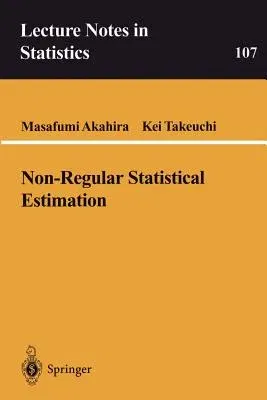Masafumi Akahira
(Author)Non-Regular Statistical Estimation (Softcover Reprint of the Original 1st 1995)Paperback - Softcover Reprint of the Original 1st 1995, 18 August 1995

Qty
1
Turbo
Ships in 2 - 3 days
In Stock
Free Delivery
Cash on Delivery
15 Days
Free Returns
Secure Checkout

Part of Series
Lecture Notes in Statistics
Print Length
188 pages
Language
English
Publisher
Springer
Date Published
18 Aug 1995
ISBN-10
0387945784
ISBN-13
9780387945781
Description
Product Details
Authors:
Book Edition:
Softcover Reprint of the Original 1st 1995
Book Format:
Paperback
Country of Origin:
US
Date Published:
18 August 1995
Dimensions:
23.39 x
15.6 x
1.07 cm
ISBN-10:
0387945784
ISBN-13:
9780387945781
Language:
English
Location:
New York, NY
Pages:
188
Publisher:
Series:
Weight:
281.23 gm